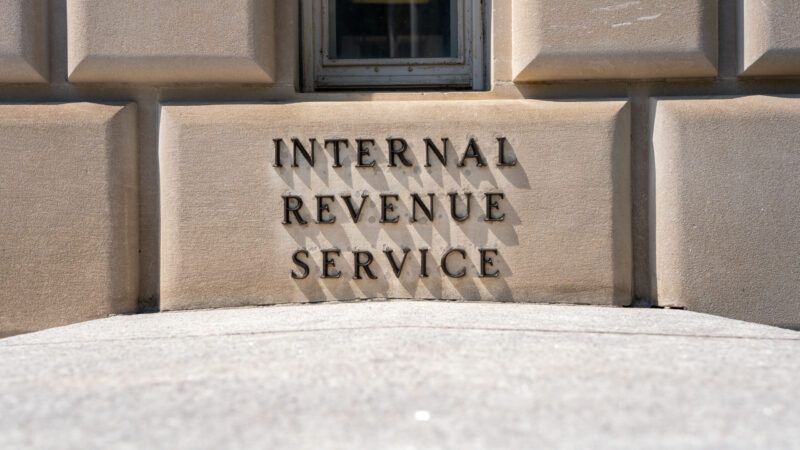Stealing Innocent People's Tax Returns Isn't Heroic. The IRS Leaker Doesn't Deserve a Do-Over.
Charles Littlejohn exposed hundreds of thousands of Americans’ private tax returns and undermined the nation’s voluntary tax system. His five-year sentence shouldn’t be reduced.

This week, convicted tax-return leaker Charles Littlejohn will ask an appeals court to reduce his five-year prison sentence. But after inflicting extensive, lasting damage on the U.S. system of voluntary taxation, he should feel fortunate he didn't get a harsher sentence.
Between 2018 and 2020, while working as a contractor for the IRS through Booz Allen Hamilton, Littlejohn stole and leaked the confidential tax returns of roughly 405,000 individuals, businesses, and even charities. He and his allies celebrated exposing President Donald Trump's filings, but it's hardly a public service to expose the records of hundreds of thousands of other innocent, unsuspecting Americans—an act ProPublica turned into a yearslong political spectacle with more than 50 stories targeting their ideological opponents.
What's been the effect? Actual tax evaders are incentivized to take their finances further underground. Meanwhile, the exposure encourages innocent taxpayers to fear that the press will drag their law-abiding—yet private—personal and business dealings into public turmoil.
When investigators began closing in, Littlejohn destroyed much of the evidence of his crime. After he was caught, he pleaded guilty to illegally disclosing tax returns and return information without authorization.
Now he wants his sentence to be vacated and resentenced by a different judge. He claims that U.S. District Judge Ana Reyes, appointed by former President Joe Biden, was "biased" because members of Congress urged a tough sentence, and because she called Littlejohn's crime "an attack on our constitutional democracy."
Littlejohn's defense hinges on the idea that leaking confidential tax data served a noble purpose for democracy by revealing inequities in the tax code. He thinks he should have received a much lighter sentence because he meant well.
The court record is clear that justice was served. Judge Reyes explained her reasoning, identified the aggravating factors, and imposed a lawful sentence within the statute's limits.
Furthermore, Littlejohn's motives don't erase the gravity of his crime. Stealing private tax data is not a victimless offense; it's a violation of every taxpayer's right to privacy—a right that protects the powerless and supports voluntary compliance with tax law. The most ardent "eat the rich" advocates should consider whether public shaming campaigns in history—from prohibition to antigambling crusades—reduced the behavior, or merely drove it into the shadows.
According to the Tax Law Center at New York University Law School, "The success of the United States's voluntary tax system is founded in part on taxpayers being assured that the information they provide to the IRS will remain confidential." That principle shouldn't change depending on who's in the White House, what the media thinks about them, or the taxpayer's income bracket.
If Littlejohn now succeeds in convincing the D.C. Circuit Court of Appeals that his five-year prison sentence was unfair, it will be another blow to the fragile covenant between the American people and their government. With the damage still reverberating, the court should uphold the sentence and refuse to reward his breach of public trust.


Show Comments (47)